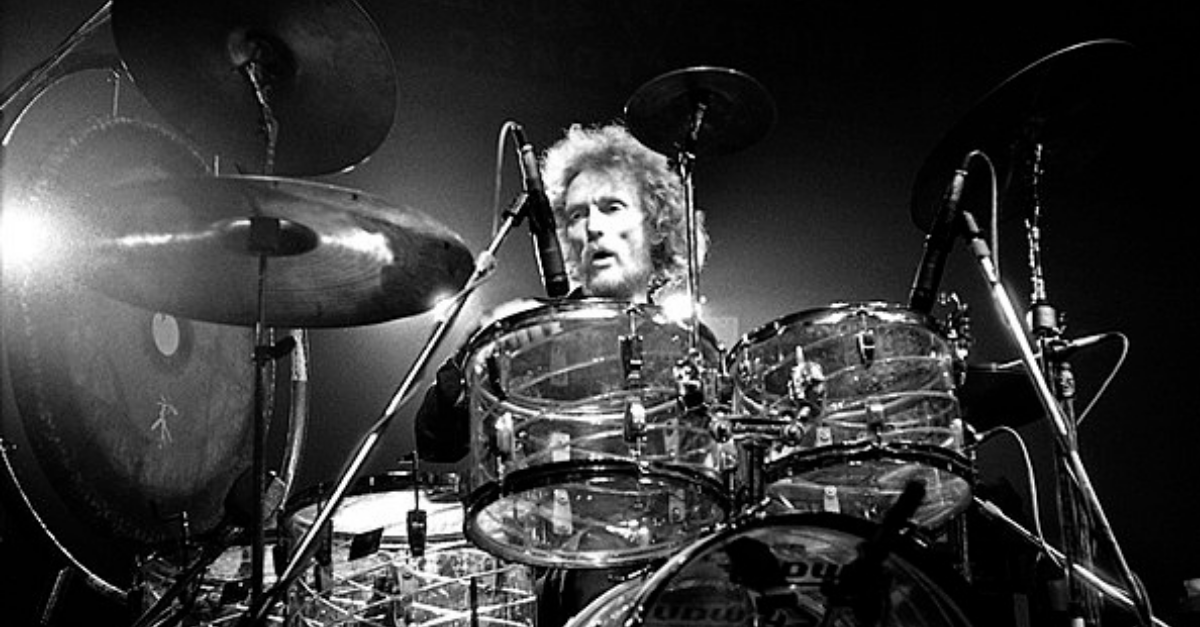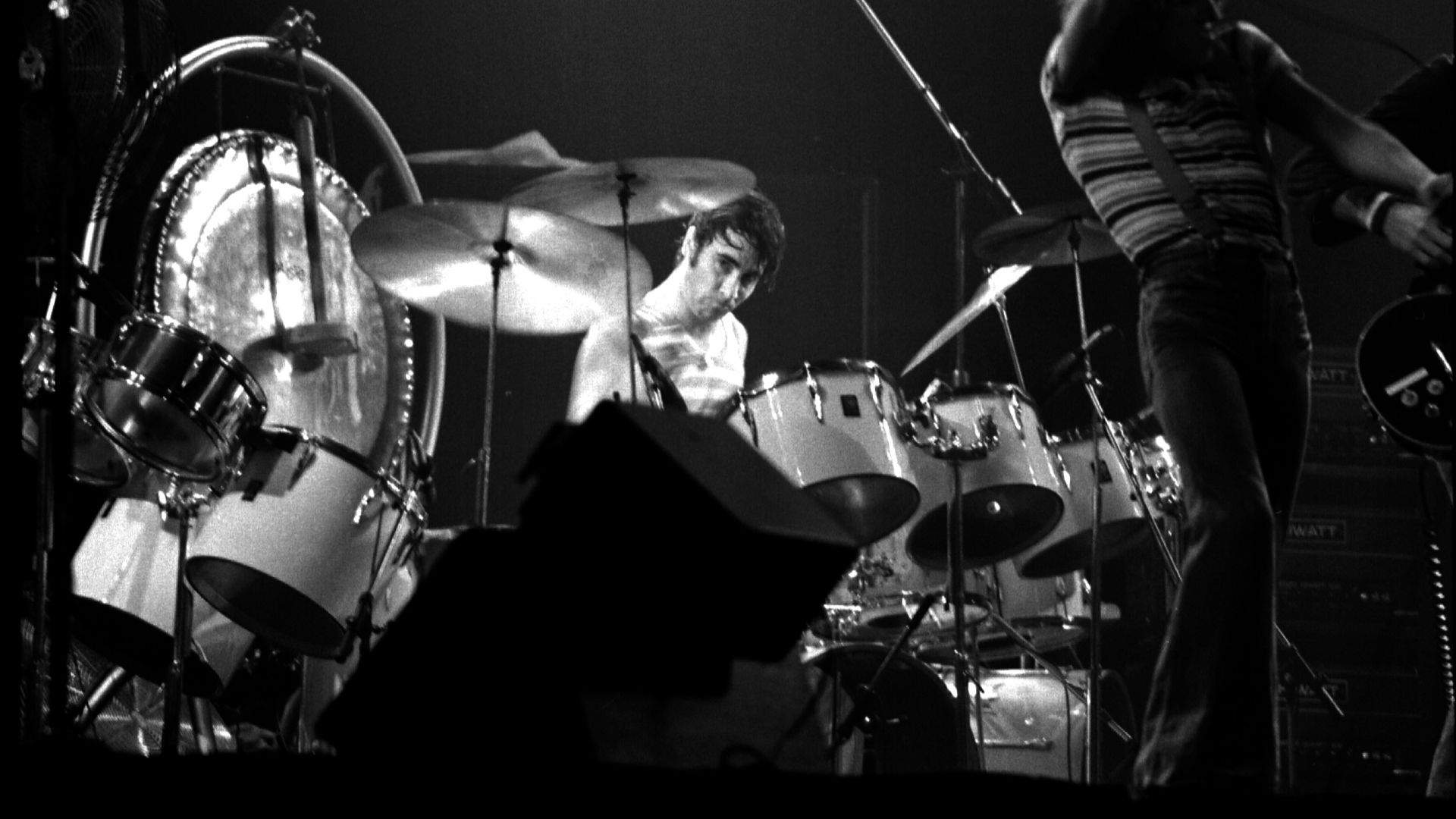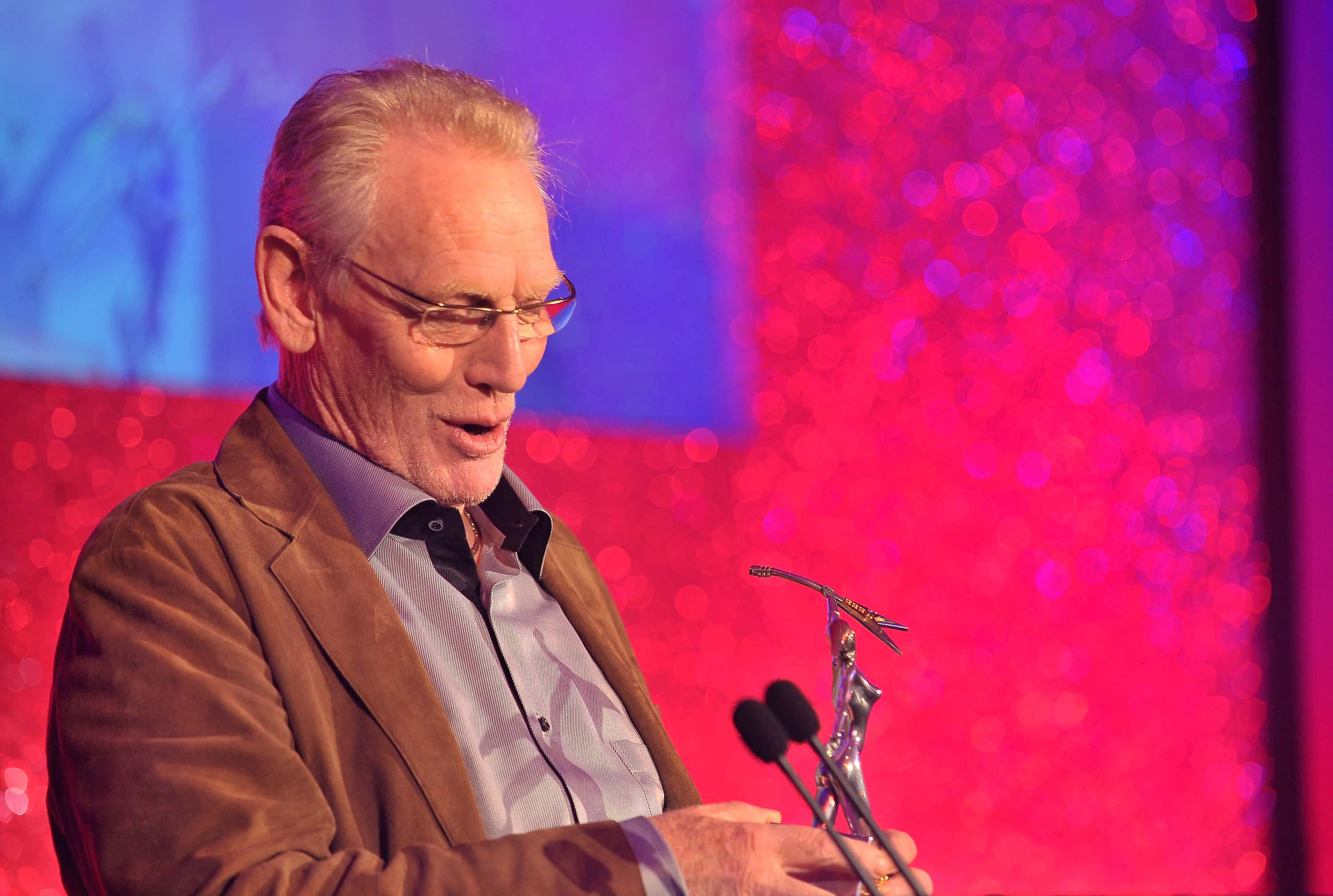Brilliant And Dangerous
Music has no shortage of divas and eccentric personalities, but in Ginger Baker’s case, his actions earned a whole new level of notoriety. While he spent much of his life collaborating with other musicians in various groups, one would be hard-pressed to find more than a few who truly called him a friend. To fans and those closest to him, he was ill-tempered at best, and dangerous at worst—all while being one of the most iconic drummers in rock history.

1. He Received His Nickname
Known for his wild and exuberant style of performance, Ginger Baker made waves as a musical genius among other rock drummers, but that wasn’t his only reputation. Very quickly, those who met him learned how unpredictable and intense he could be, with a fiery temper that seemed to be foreshadowed in his youth. Born on August 19, 1939, as Peter Edward Baker, he received the nickname “Ginger” for his flaming red hair.
However, his hardships at a young age may have earned this hostile attitude.
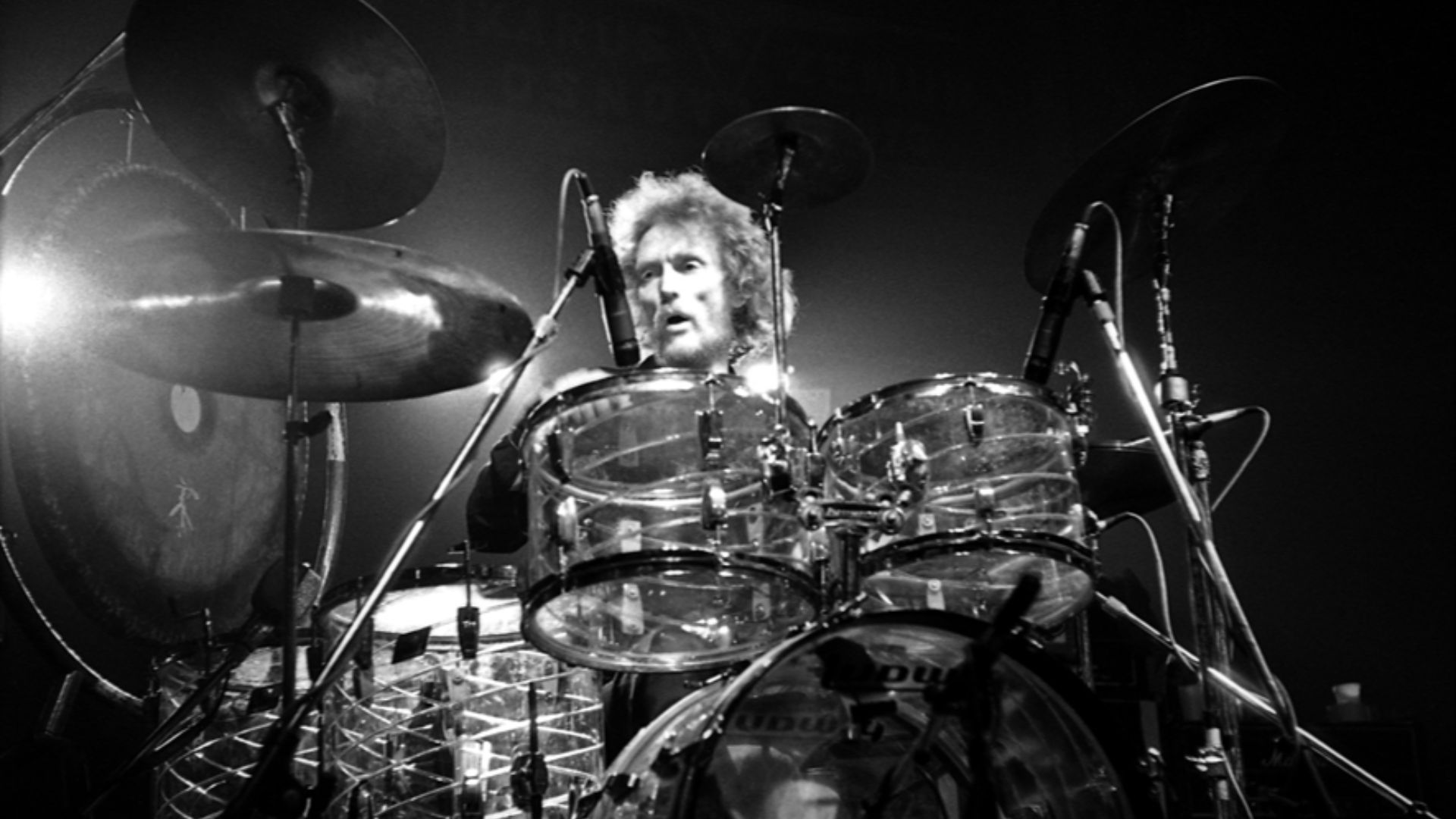 Zoran Veselinovic, Wikimedia Commons
Zoran Veselinovic, Wikimedia Commons
2. He Lost Someone
Born in Lewisham, South London, to his parents, Ruby May and Frederick Baker, Ginger would sadly experience one of his first major losses at only five years old. During WWII, his father served as a lance corporal and participated in the Dodecanese campaign, during which he perished.
Despite that loss, Ginger’s natural aptitude soon appeared as he grew older.
 Shepard Sherbell, Getty Images
Shepard Sherbell, Getty Images
3. He Had Rhythm
Ginger found himself drawn to music at an early age, especially after he began listening to jazz more and developed a passion for the style. Even in school, he couldn’t keep his mind from drifting to the music he loved, and he spent much of his time drumming all of his favorite rhythms on his desk.
Fortunately, he received a lot of support from those around him.
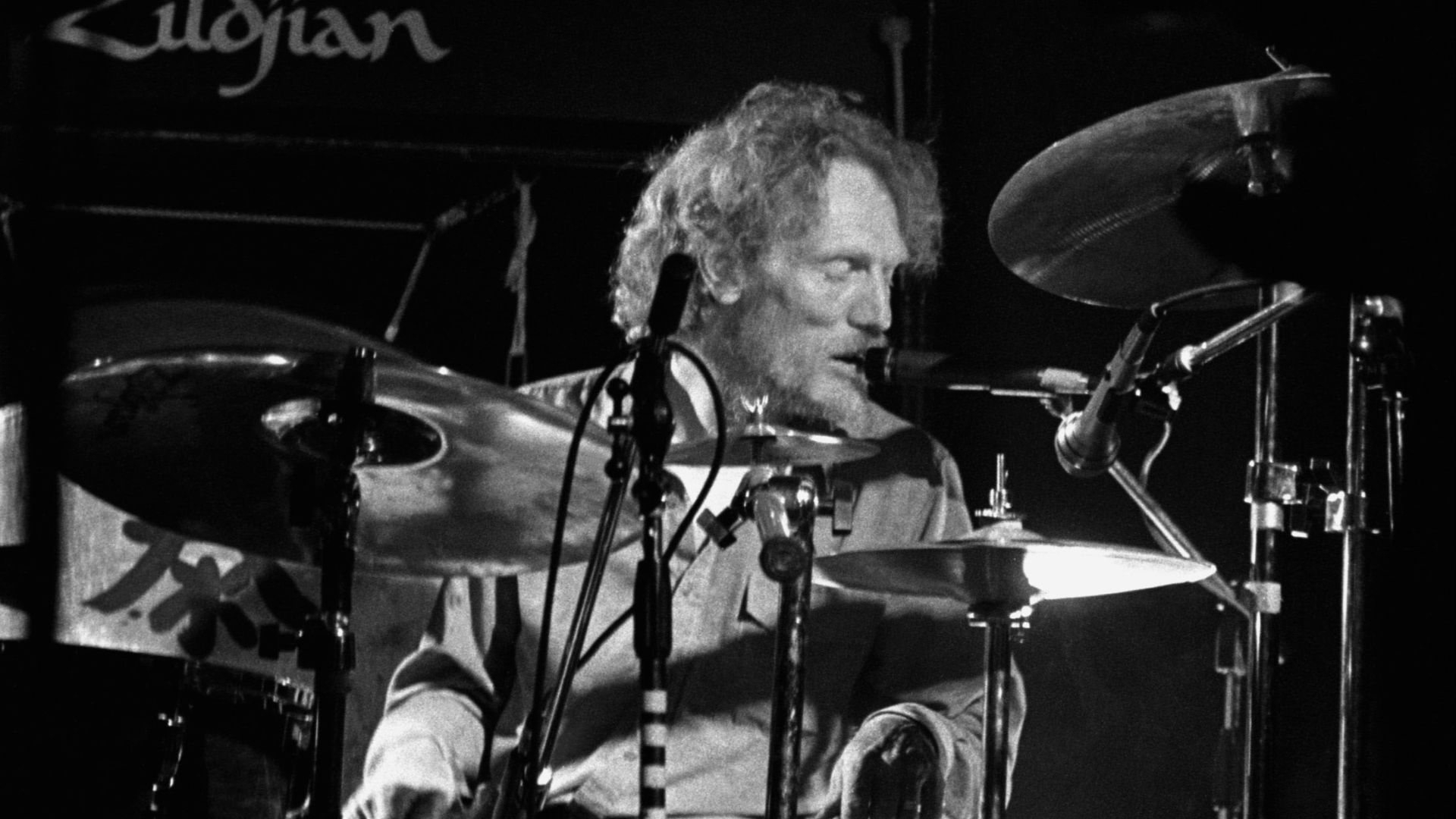 Gorup de Besanez, Wikimedia Commons
Gorup de Besanez, Wikimedia Commons
4. They Encouraged Him
Although Ginger was an amazing drummer, his first real instrument was the trumpet at 15 years old. Still, his affinity for percussion remained, and even his friends knew it was what he was meant to do. While at a party, remembering his tendency to drum on his desk, they pushed Ginger to play drums with the band performing there.
This couldn’t have ended better.
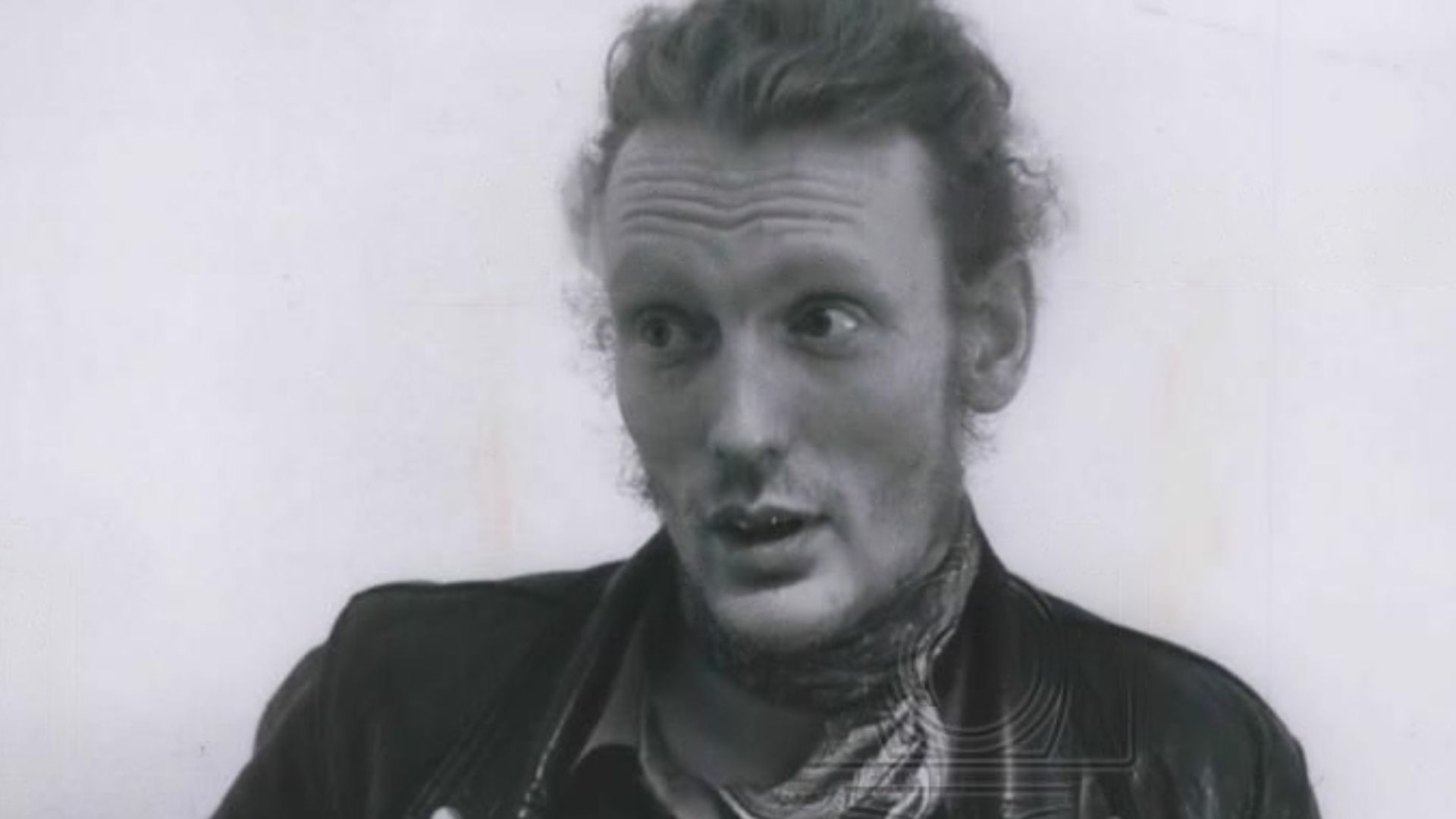 ATCO Records, Wikimedia Commons
ATCO Records, Wikimedia Commons
5. He Was Inspired
Conceding to the nudging of his classmates, Ginger sat down with the band and started to play the drums, even though he was quite inexperienced. This didn’t seem to matter, though, as the other band members quickly became impressed at his skill and told him so afterward. At that moment, he decided he would be a professional drummer.
Luckily, he caught a break before long.
 Michael Ochs Archives, Getty Images
Michael Ochs Archives, Getty Images
6. He Found Work
With his dream career decided, Ginger put himself out there to gain experience as a drummer, and possibly some fame. Auditioning for multiple bands at only 16 years old, he wound up taking a spot in Hugh Rainey’s All Stars, which later became the Storyville Jazz Band.
His raw talent didn’t mean he had finished learning, however.
7. He Was Taught
No one could deny that Ginger had the makings of a rock star, but he was still a young amateur, and he had no delusions about his lack of training. So, as he continued to perform into the 1960s, he began studying under one of the most prominent jazz drummers in the UK at that time, Phil Seamen.
Unfortunately, he soon developed something other than his skills.
 Michael Ochs Archives, Getty Images
Michael Ochs Archives, Getty Images
8. He Formed Poor Habits
Throughout the 1960s, Ginger performed as a jazz drummer at venues across London and fully embraced the life of a famous musician, even some of the darker sides. During this time, he developed an addiction to illicit substances, and this struggle would follow him for most of his life.
Even worse, in keeping with his volatile nature, he often rubbed people the wrong way.
 Shepard Sherbell, Getty Images
Shepard Sherbell, Getty Images
9. They Couldn’t Stand Each Other
Before the end of the decade, Ginger joined another group called Blues Incorporated, where he formed one of his most significant relationships. However, it wasn’t a good one, and as Ginger got to know bassist Jack Bruce, the two couldn’t keep from fighting. Still, they worked together again with the Graham Bond Organization.
But despite their efforts, things ultimately went extremely left.
10. He Was No Picnic
The conflict between Ginger and Bruce ranged from petty to dangerous and fluctuated quickly as it boiled over into their performances, with them frequently fighting on stage. Still, Ginger’s issues didn’t stop with Bruce, and his irritable reputation spread to the public as he started having confrontations with fans as well.
Finally, things reached a tipping point.
 Michael Ochs Archives, Getty Images
Michael Ochs Archives, Getty Images
11. He Escalated Things
Before too much longer, the tensions between Ginger and Bruce had become irreparable, and Ginger had had enough. Seeing no other alternative, he fired Bruce from the band, but this was ineffective. Bruce continued to show up to play with them, which soon prompted an enraged Ginger to threaten him with a blade on stage.
Despite his issues, Ginger was still able to have some meaningful relationships.
 Michael Ochs Archives, Getty Images
Michael Ochs Archives, Getty Images
12. He Had A Family
Over the course of his life, Ginger’s romantic relationships proved to be just as tumultuous as his professional ones. Starting with his first marriage to Liz Finch in 1960, during which they welcomed their daughter Ginette, Ginger would eventually marry three more times. By the end of his life, he would also father two other children.
Meanwhile, he crossed paths with another star-to-be.
13. He Was Impressed
As he continued to perform, Ginger met many of the other British musicians trying to make it big. One such performer was legendary guitarist Eric Clapton, who sometimes sat in with Ginger’s band, allowing the drummer to see his potential. Then, attending one of Clapton’s performances with John Mayall’s Bluesbreakers, Ginger grew even more impressed.
Of course, this respect wasn’t just one way.
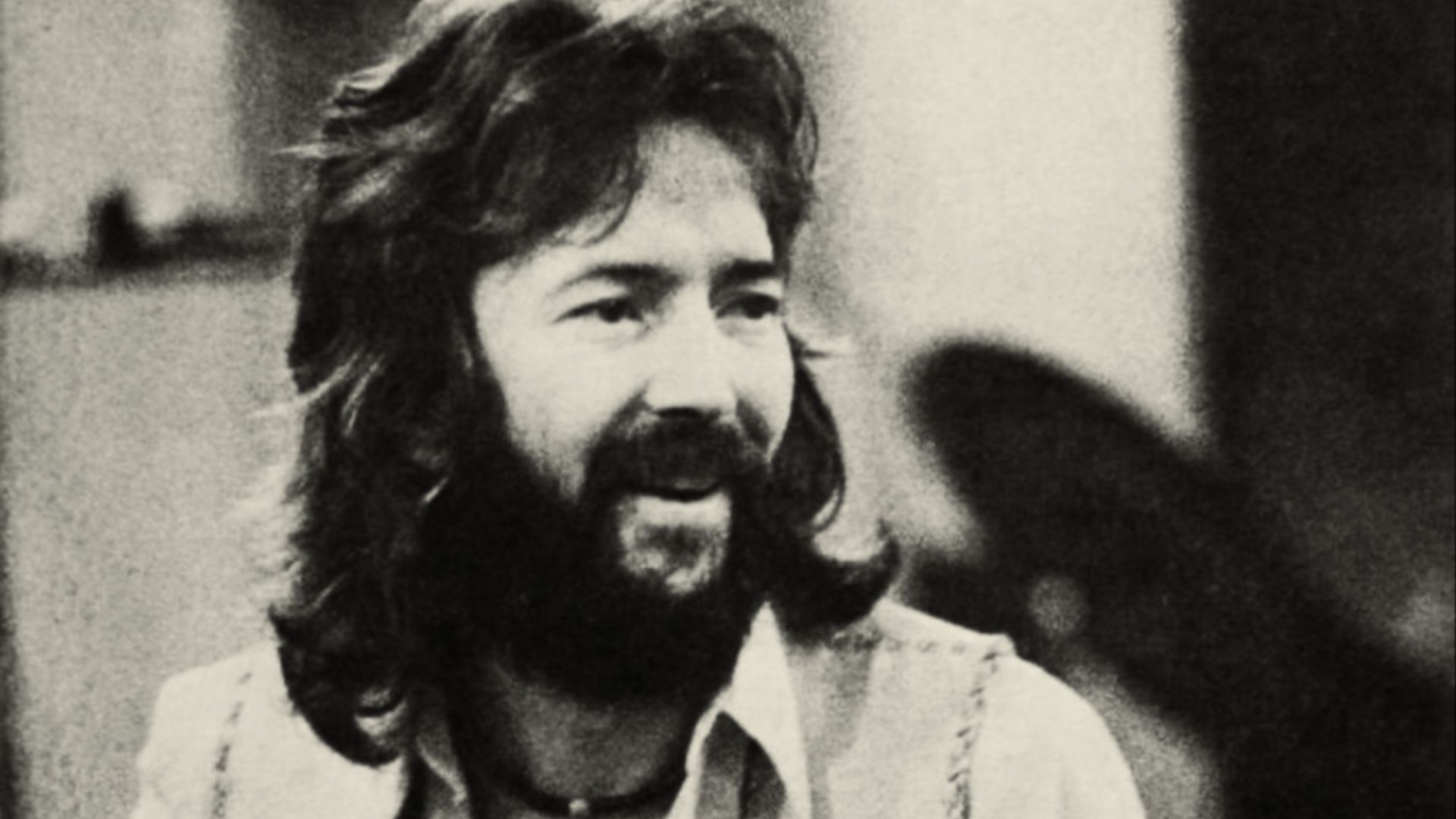 RSO Records, Wikimedia Commons
RSO Records, Wikimedia Commons
14. He Had Mutual Feelings
For what it’s worth, Clapton seemed to reciprocate Ginger’s admiration for him, but it didn’t always have to do with the drummer’s musical ability. He would later state that, after the Bluesbreakers gig, Ginger drove him home in his Rover. While the two were already forming a friendship, Clapton specifically was “very impressed with his car and driving”.
Suddenly, a lightbulb went off in Ginger’s head.
 Michael Ochs Archives, Getty Images
Michael Ochs Archives, Getty Images
15. He Pitched His Idea
Watching Clapton with the Bluesbreakers, an idea struck Ginger like a lightning bolt, and he soon developed his next big project. During the subsequent ride with Clapton, Ginger proposed a new experimental band, consisting of the two of them. Clapton showed interest, but having played with Jack Bruce once before, agreed to it only if Ginger would ask Bruce to join too.
Ginger begrudgingly accepted.
 Michael Ochs Archives, Getty Images
Michael Ochs Archives, Getty Images
16. They Worked Together Again
Ginger was, understandably, taken aback by Clapton's stipulation of including Bruce in their new band—and was equally unhappy about it. However, he was willing to do anything to get Clapton’s involvement, so in 1966, Ginger and Bruce agreed to put aside their differences and officially formed the band Cream.
Finally, it all came together—for a while anyway.
17. They Thought Of A Name
Getting Clapton on board, they still had to come up with a name, and briefly considered “Sweet 'n' Sour Rock 'n' Roll”. However, over the past decade, Ginger, Clapton, and Bruce had each managed to stand out in the British music world, specifically among blues and jazz players. As many referred to them as the cream of the crop, the band took on the name Cream.
Soon, it was time to show themselves.
 Michael Ochs Archives, Getty Images
Michael Ochs Archives, Getty Images
18. They First Appeared
On July 29 of that year, Cream played at a nightclub called the Twisted Wheel in what was their unofficial debut. However, just two nights later, they would appear before audiences officially for the first time during the Sixth Annual Windsor Jazz & Blues Festival. They would break up only two years later, but not before releasing four albums together.
Although short, this time was extremely significant to Ginger’s development.
 Michael Ochs Archives, Getty Images
Michael Ochs Archives, Getty Images
19. He Developed His Styles
Ginger’s reputation as a drummer grew even further during his time with Cream, and he demonstrated the range of his performances. While many came to see him as an energetic and flashy drummer, others saw a calmer side of him. This was due to his inspiration from earlier British jazz musicians, who usually displayed a more subdued demeanor.
Not to mention, he became an inspiration himself.
 Michael Ochs Archives, Getty Images
Michael Ochs Archives, Getty Images
20. He Was A Trendsetter
Due to his style, many often compared Ginger to The Who’s drummer, Keith Moon. Fortunately, the two were friends and once attended a Duke Ellington concert, where they watched drummer Sam Woodyard play with two bass drums. After this, both Ginger and Moon incorporated double bass drumming into their music, becoming pioneers of the technique in rock.
He also created one of the coolest aspects of later music.
21. He Introduced An Archetype
When it comes to Ginger’s contributions to rock music, one stands above the rest as it quickly became a common trope of the genre. Stemming from Cream’s first album in 1966, Fresh Cream, one of its tracks, “Toad,” consists of a five-minute drum solo composed and performed by Ginger. Many consider this to be the first drum solo in rock.
Of course, Cream was only his first collaboration.
22. He Joined Another Group
Following Cream’s separation, Ginger was still open to creating another group, albeit likely one without Jack Bruce. Furthermore, he still wanted to work with Clapton, and in 1969, the two of them joined Steve Winwood and Ric Grech to create a supergroup called Blind Faith. However, this was also short-lived, and they released one album before calling it quits.
He did make another lasting friendship, though.
 Michael Ochs Archives, Getty Images
Michael Ochs Archives, Getty Images
23. He Stuck His Neck Out
During this period, Ginger met another budding musician, whose work furthered his love for African music. At the time, Nigerian musician Fela Kuti was going to school in London while spending his free time at various blues and jazz clubs. Through this, he became friends with Ginger, who used his connections to secure Kuti several gigs in the area.
Still, in his own career, Ginger didn’t stop.
24. He Moved On
Almost immediately after Blind Faith broke up, Ginger was ready to get back on the horse and took a couple of his bandmates with him. This time, he formed a supergroup with his name plastered across it, calling the band Ginger Baker’s Air Force. Bringing along Winwood and Grech, they also included eight more members, such as Phil Seamen and Alan White.
Following this, he made a big change.
25. He Relocated
Similar to his previous projects, Ginger Baker’s Air Force only lasted a couple of years before they threw in the towel, leaving Ginger with a desire to shake things up. Not one for half-measures, he started making big plans to establish a recording studio in Lagos, Nigeria. To do this, though, he embarked on a grand adventure.
26. He Made A Film
Initiating his plan for a new studio in 1971, he also decided that simply flying to Lagos was too boring, and that crossing the Sahara on land would be far more daring. Wanting to make a full account of this journey, he invited filmmaker Tony Palmer along for the ride, creating a documentary titled Ginger Baker in Africa, which released in 1971.
This trip led back to another impactful relationship.
 Ginger Baker in Africa (1971), some Goat
Ginger Baker in Africa (1971), some Goat
27. He Met A Friend
Now in Lagos, Ginger had the opportunity to work with an old friend, whose music he endlessly adored. In the early 70s, Ginger reconnected with Fela Kuti, and the two collaborated on several projects, including Ginger’s next album, Stratavarious. Because of his love for Kuti’s work, Ginger adopted more and more of his Afrobeat style.
Fortunately, Ginger’s endeavor paid off for a while.
28. He Was Successful
Despite Ginger’s unyielding resolve, he wasn’t able to open his new recording studio right away in 1971, due to several logistical challenges. However, two years later, Batakota Studios finally had its grand opening. Ginger hit the ground running, too, and would soon host musicians from all over, including big names like Paul McCartney.
At the same time, his days of performing in music groups weren’t over.
 Michael Ochs Archives, Getty Images
Michael Ochs Archives, Getty Images
29. He Worked With Others
Hoping to fare better than previously, Ginger again formed a band with two other musicians named Paul and Adrian Gurvitz. Starting in 1974, Baker Gurvitz Army toured throughout Europe over the next couple of years and recorded three albums. Sadly, they didn’t last too much longer and broke up after their manager lost his life in a plane crash.
Following this, he took a step back.
30. He Lived A Simple Life
Although Ginger’s studio in Lagos was initially a success, by the early 1980s, it had been on a steady decline for a while until he had no choice but to shutter it. In the wake of this failure and the break-up of his most recent band, he moved to Tuscany and stepped out of the music business for a bit, preferring to relax on an olive farm there.
This time ended up changing his life, and quite possibly saving it.
31. He Beat His Demons
Since the 1960s, Ginger’s addiction to illicit substances had followed him closely, even though he tried to overcome it many times. In his words, he would use every trip to Africa as an attempt to get sober, even if this never worked permanently. Thankfully, during his time as an olive farmer, he finally gained enough clarity and space to quit his substance use for good.
Even with that succes, though, he couldn’t stay away from his passion forever.
 Evening Standard, Getty Images
Evening Standard, Getty Images
32. He Returned To Music
Once Ginger had spent enough time away from his familiar stresses, he felt he was ready to rejoin the music industry. Following a brief stint as a session drummer on Hawkwind’s 1980 album, Levitation, he joined the band. Even though he left the following year, his work with them appeared on two of their albums.
Meanwhile, he wanted to add another job to his resume.
33. He Wanted To Branch Out
Ginger loved making music, but even as he returned to the industry, he likely grew tired of its various pressures and pitfalls, which may have influenced his decision to try something else. Later that decade, he relocated again to Los Angeles with a new dream of entering show business.
This didn’t work out as well as he hoped.
34. He Was Down On His Luck
Unfortunately, Ginger would only face even further failure in his pursuit of becoming an actor. While he did appear in a series called Nasty Boys in 1990, most of his other auditions came up fruitless, such as for a role in Weird Al’s 1989 comedy, UHF. Out of work and disheartened, he resorted to seeking out music work through magazine ads.
Returning to his roots, he found a familiar face.
 Michael Ochs Archives, Getty Images
Michael Ochs Archives, Getty Images
35. They Came Back Together
As the 90s progressed, Ginger decided to return to basics with musicians whom he already knew were powerhouses in their genres. This meant working with his age-old rival, Jack Bruce. As another briefly successful group, Ginger and Bruce joined guitarist Gary Moore to form BBM and released one album in 1994, Around the Next Dream.
He soon developed a more active interest.
36. He Had Other Passions
Leaving Hollywood in the mid-90s, Ginger remained in America but took up residence in Parker, Colorado, specifically due to the presence of another pastime of his. Having become more invested in the sport of Polo, he frequented the Salisbury Equestrian Park, where he also sponsored several music events.
Soon enough, however, he had to pick up everything and move again.
37. His Past Caught Up To Him
Ginger enjoyed his home in Colorado for about six years before circumstances forced him to leave America entirely. Although he had quit his substance use, just his history of it was enough for US Immigration to become involved. To avoid any further problems, he sold his house and took up his next residence in South Africa.
One more time, he got the band back together.
38. They Played Again
In the new millennium, old fans of Cream received a welcome surprise when all three members of the band reunited. Ginger and Bruce once again overcame their differences to perform together, playing a series of shows in 2005, both at Madison Square Garden and the Royal Albert Hall.
This didn’t mean they turned over a new leaf.
 Yui Mok - PA Images, Getty Images
Yui Mok - PA Images, Getty Images
39. His Feelings Didn’t Change
Even after all that time, Ginger and Bruce were never able to see eye to eye, and their disdain for each other seemed only to grow stronger. Bruce later spoke about their reunion, explaining how tensions between them were as high as ever, and, even though they lived on separate continents, he wanted Ginger to move even farther away.
Behind the scenes, Ginger was dealing with another major issue.
40. He Was Scammed
The late 2000s saw Ginger involved in a financial scandal when law enforcement charged his personal assistant, Lindiwe Noko, with defrauding him of around R500,000. According to Ginger, Noko had taken advantage of her access to his private information and withdrawn the money from his account without authorization.
Naturally, she had her side of the story.
41. She Made Claims
For her part, Noko didn’t deny that she came into possession of the money, but insisted that it had been with Ginger’s consent. In her version of events, she and Ginger had become romantically involved, and he gave the money to her as a gift. Ginger refuted this by claiming he had a scar that every woman he was involved with had seen, but she didn’t know about it.
Eventually, the courts reached a decision.
42. She Tried To Fight It
Noko stuck to her story and tried to fight against Ginger’s accusations in court, but in the end, the law ruled in Ginger’s favor. Noko received a conviction and a sentence of "correctional supervision" for three years. While he was on the winning side, this sentence left Ginger disappointed, and he referred to it as “a travesty”.
With all these problems, it's no wonder that his health suffered.
43. His Health Worsened
By 2013, several long-term conditions had taken more and more of a toll on Ginger until he couldn’t ignore them any longer. He announced that a lifetime of unhealthy habits had resulted in a diagnosis of chronic obstructive pulmonary disease, and that he was living with back pain that stemmed from degenerative osteoarthritis.
Still, he hadn’t finished performing yet.
44. He Had One Last Hurrah
Although his health was deteriorating in a way that increasingly limited his mobility, Ginger was adamant about making as much music as he could before the end. In 2013, he formed a quartet called the Ginger Baker Jazz Confusion, with which he toured and released his final album called Why?
He also wasn’t exactly through with the movie business.
45. He Was In Another Film
Ginger had long since abandoned his dreams of being an actor, but he would appear on-screen in one more film, although it likely wasn’t what he envisioned. In 2012, filmmaker Jay Bulger debuted his documentary Beware of Mr Baker, which depicts the life and career of Ginger—focusing more on his substance use and ill-tempered behavior.
Soon enough, his health reached a point of no return.
 Beware of Mr. Baker – Re-Release Trailer, Kino Lorber
Beware of Mr. Baker – Re-Release Trailer, Kino Lorber
46. He Couldn’t Continue
Despite his poor physical condition, Ginger still had a mind to keep performing for as long as possible, but fate had a different plan. Adding to his previous issues, in 2016, his doctors diagnosed him with severe heart problems and essentially ended his career. He announced that due to this new issue, he would be cancelling his upcoming shows.
However, he still fought it.
47. They Tried To Help Him
As his doctors treated his new heart condition, they assured him that through multiple surgeries, he would be able to return to performing on stage. However, they may have spoken prematurely, and even though his surgery went well, a nasty fall while he was recovering caused his condition to worsen again.
Sadly, he was nearing the end.
48. He Became Worse
Ginger survived these issues initially and lived for another three years, despite not being well enough to perform as he had hoped. Ultimately, his illness put him back in the hospital in the fall of 2019, when his family urged fans to pray for his health. A month later, he succumbed to his lung disease and passed on October 6.
Thankfully, he remained in others’ memories.
49. His Legacy Remains
Ginger Baker was hard to get along with and encountered many problems in his life, but there’s no denying the respect that people ascribe to him. The innovations he introduced to the music world have earned him a shining reputation, and as Modern Drummer magazine stated, he was “one of classic rock's first influential drumming superstars of the 1960s”.
Even so, he likely would take issue with one part of his legacy.
 Michael Ochs Archives, Getty Images
Michael Ochs Archives, Getty Images
50. He Hated It
With his reputation for pioneering many aspects of rock drumming, Ginger’s irritable attitude has remained a part of his legacy, even concerning some of the praises people give him. For instance, the website AllMusic definitively labeled him “the most influential percussionist of the 1960s,” and brought up the impact he’s had on modern heavy metal drummers. Ironically, Ginger reportedly hated heavy metal.
 Michael Ochs Archives, Getty Images
Michael Ochs Archives, Getty Images

